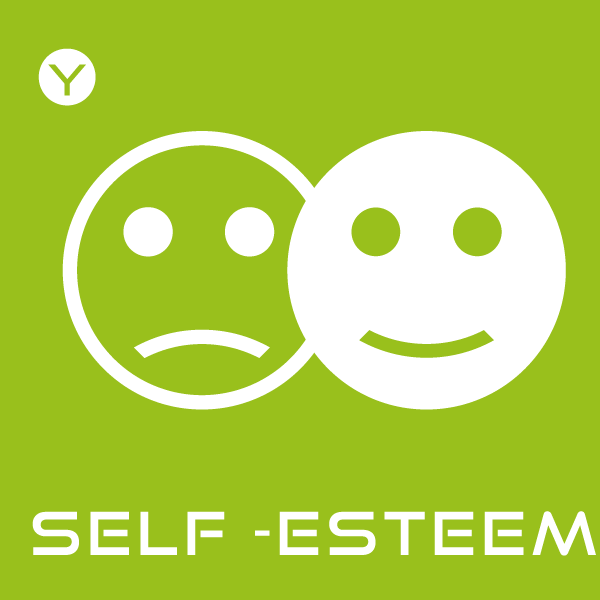
MY SELF - ESTEEM - Y
Test for people aged 13-19
A comprehensive tool which explores your self-esteem and evaluates your attitude and behaviour. The test is designed to examine your attitude towards your knowledge, competences, skills, attractiveness and living in harmony with yourself.
The test is based on 5 subdimensions:

The comprehensive interpretation of results contains recommendations of specialists and supports setting goals and making decisions at different stages of the tested person's life.
- to build awareness of one's own potential
- to identify the strengths and weaknesses within the area of self-assessment
- to work on strengthening self-esteem
- to build a strong, confident person within yourself
- to establish an individual path of personal development
- a model based on the Five Factor Model of Personality developed by Paul T. Costa, Jr. and Robert McCrae
- 60 questions with answers arranged on a scale of 0 to 4
- time for completion: about 15 minutes
- ormalized tool
- detailed report available in Polish and English
- report available immediately after submission of the test
Pupils / Students for the purpose of getting to know their strong sides and areas for development. Useful in the process of discovering the way of thinking about oneself. It supports the process of understanding one’s own behaviours, attitudes based on establishing the perception of oneself: one's attractiveness, ability to be close to others or to consider oneself important. It helps to develop self-confidence and self-worth. It supports setting an individual direction in the area of self-assessment.
Career offices for verification during the recruitment process, for specifying strong sides and areas for development and planning the career path of students. It supports the process of understanding their behaviours and attitudes based on identifying their self- perception: one's attractiveness, ability to be close to others or to consider oneself important. Significant for the diagnosis of students in regards to entering the labour market.
Lecturers as an assisting tool for classes and workshops. Useful during lessons concerning, among others: strengthening and building up self-confidence, building a personal brand, communication, dealing with difficult situations, working with restrictive beliefs.
Teachers for individual and group work with students. It allows for determining the level of self-assessment of a young person for the purpose of supporting them in the developmental process.
Educationalists for individual and group work with students. It helps to provide a better understanding of a pupil and to make fuller, empathetic contact with him or her. It identifies selected personality traits and the level of self-assessment of an individual. Useful in verifying the way of perceiving one’s attractiveness, ability to be close to others or to consider oneself important. It supports the process of understanding oneself, strengthening the student’s self-confidence and sense of self-worth.
Psychologists for individual and group work with young patients. It helps to provide a better understanding of the patient and to make fuller, empathetic contact with him or her. It supports the process of diagnosis and planning further therapy.
Coaches for individual work (coaching sessions) and for group coaching. It identifies selected personality traits and the level of self-assessment of an individual. Helpful in verifying the way of perceiving one’s attractiveness, ability to be close to others or to consider oneself important. Useful in getting to know the client and determining coaching goals.
Career advisors for individual and group work. Helpful in verifying the way of perceiving oneself, one’s attractiveness, ability to be close to others or to consider oneself important. Significant in establishing the barriers to the effective functioning of a young person. It allows for the diagnosis of personality-based aptitudes in order to determine a career path.
Parents to get to know the strong sides and areas for development of their child. It identifies the way of perceiving oneself, one’s attractiveness, ability to be close to others or to consider oneself important. Useful in constructing self-awareness of a young person and in determining an individual path for
MY SELF-ASSESSMENT for Young- a questionnaire used to measure the level of self-esteem of 13-19 year olds.
Description: The questionnaire consists of 60 statements of a self-descriptive nature to which the respondent refers on a five-point scale from "I completely disagree" through "I have no opinion" to "I completely agree".
Reliability: Measured by Cronbach's alpha coefficient. The internal consistency coefficient is 0.79
Relevance: Content validity, and criterion validity of the tool were examined. The consistency of the competent judges' assessments was established for the consistency of all test items included in the different sub-dimensions. A correlation analysis of the questionnaire with the MSEI test was carried out, obtaining the expected results.
Normalisation: Sten scores were determined on the basis of a sample of 692 individuals with gender, age and place of residence. Norms were determined in one age group, independently for men and for women.